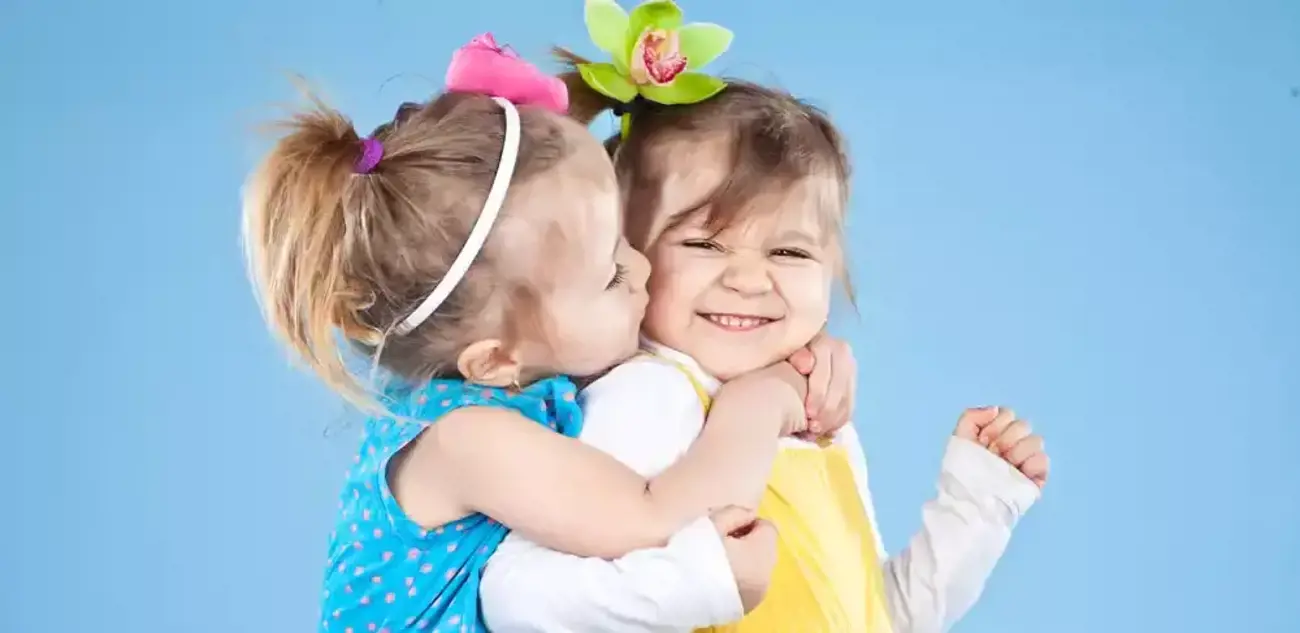Whether they're pals for life or just for preschool, there is much to be gained from young children forming friendships with one another. Although toddlers share happy times together, between the ages of three and five, preschoolers get busy building real friendships and developing the social skills that will accompany them through life.
Let's look at the benefits of childhood friendships and see how parents can help children forge great relationships in child care and beyond.
Why is friendship such a positive thing for children?
At all ages, it feels good to share the company of others, and for young children, friendships are a big part of growing up and making sense of the world.
Childhood friendships are important because:
- They support youngsters' emotional and social development
- They provide opportunities to practice verbal and non-verbal communication skills, such as speaking and recognising facial expressions
- They help to increase children's empathy and capacity for selflessness, like getting to know a friend's likes and dislikes
- They encourage good behaviour with sharing toys and solving conflicts
- They decrease stress and increase children's sense of belonging
- They boost youngsters' feelings of happiness, wellness and self-esteem
All in all, friendships are a positive thing. So how can parents help young children to nurture and expand on the connections they make in child care?
Well, here are six practical things mums and dad can do:
- Lead by example: Children learn a lot by looking at how adults relate to other adults, so make sure you interact positively with your friends. This will prompt your child to behave similarly with theirs.
- Encourage caring and sharing: Small children might find the concept of 'sharing' hard to handle, but good manners are a great way to solidify friendships. Teach your child the importance of saying things like, "Please", "Thank you" and "It's your turn now."
- Read all about it: Children also learn about friendship from books, and Sharing A Shell, by Julia Donaldson is a lovely title that taps into the sharing theme. You could also look at photo albums, pointing out old friends and telling friendship anecdotes.
- Get social: Whether you host a get together at home or meet at the park, play dates outside child care hours are a great way to solidify connections. These sort of casual catch-ups are also a chance to meet other parents and form some friendships of your own.
- Join in: Children learn a lot about friendship by playing with one another, but there is also fun to be had when a parent joins in. Take the time to interact with your child and their friends, even if it's just by admiring their paintings at pick-up time.
- Plan a special event: Big birthday parties aren't for every family, however, even a small celebration is a great chance for child care friends to bond over birthday cake.
Every child is different. Some are gregarious, others are shy and one firm friendship may give way to another as interests and circumstances change.
As children get older, their friendships take on different complexions, so go with the flow and remember that even transient friendships have long-lasting benefits.
References:
First Discoveries
The Washington Post
































